“Home of Hope”: How Youth Become Ministers in a Hub in Kharkiv Region
27 March 2025
“Home of Hope” is a ministry hub that has welcomed over a thousand internally displaced people from Kharkiv since the beginning of Russia’s full-scale invasion of Ukraine. Although the conditions were far from ideal, people were able to receive essential help and words of hope after the shock of war.
Today, the hub continues to be prepared to welcome a new wave of displaced people.
But it serves one more purpose.
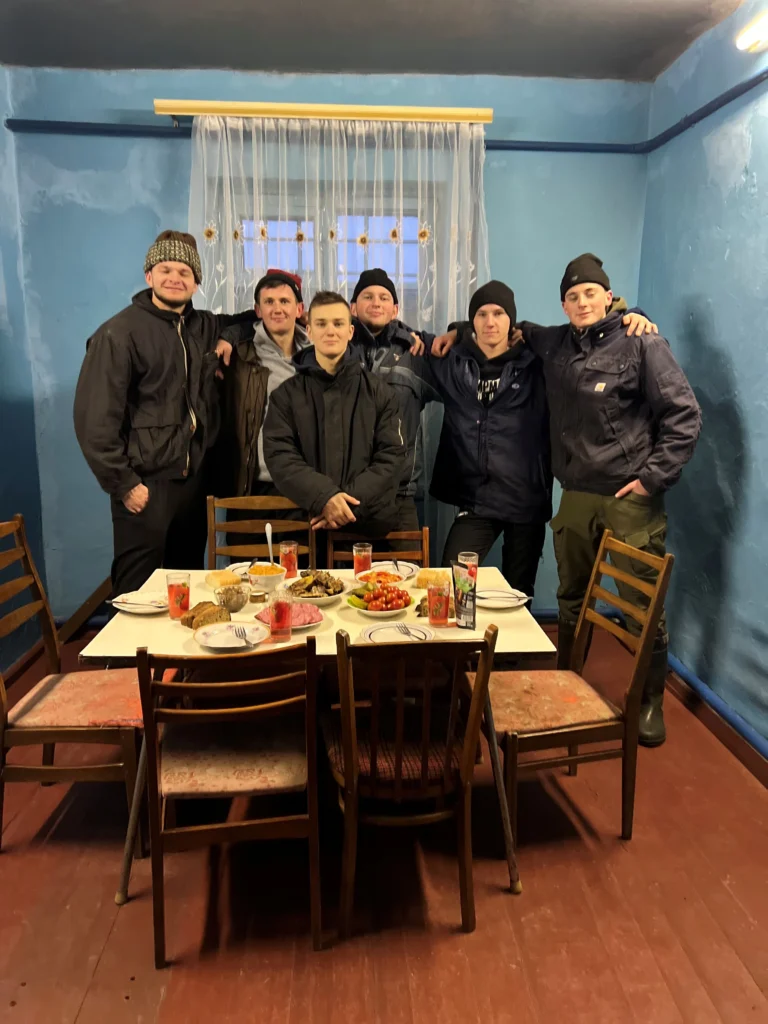
It hosts teams of young Christians from Rivne region who, under the guidance of an experienced minister from Kharkiv region and through evangelistic work, are growing into mature ministers.
For these young ministers, the hub transforms into a missionary and volunteer base for a whole month.
Serhii Tiurikov, a CITA missionary with over 10 years of experience serving in remote areas of Kharkiv region and a pastor of a local church in one of the villages of Krasnokutsky district, mentors these young people.
“Young ministers grow and develop here. Back home, they only know the road from home to church or from home to Poland to earn money. But in Kharkiv region, there are countless roads: to the disabled, to the lonely, to unbelievers, to those affected by war, to displaced people, to places where fighting took place, and more. They themselves say that when they return from Kharkiv region, they are fired up to serve the Lord,” said missionary Serhii.
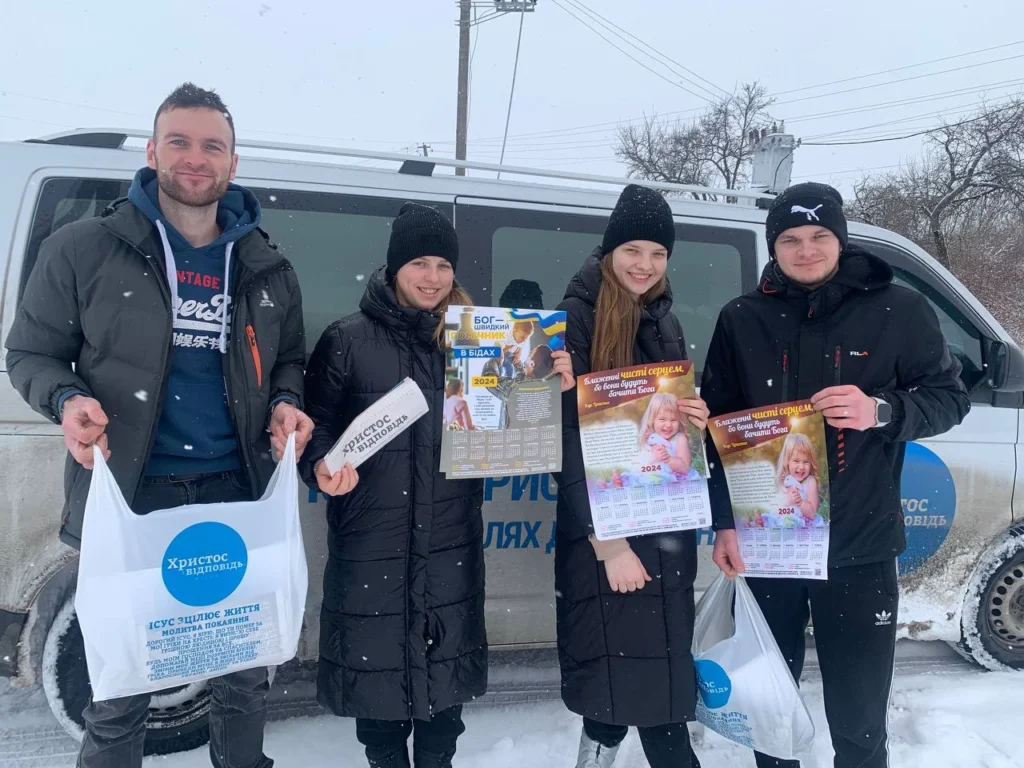
“When I go there (to Kharkiv region – ed.), I feel spiritually stronger, I feel God’s presence over me. I have a desire to serve the Lord, to help, and as long as there is an opportunity, I want to use this time so that the Lord’s name is glorified,” shared Andrii, a volunteer from Rivne region.
Serhii noticed that many people need spiritual support – someone to listen to them, to pray for them:
“I practice confession in my ministry. Sometimes people need to open their hearts to God, receive guidance and prayer. Many young people needed this but couldn’t open up to someone for various reasons, and they had to do it here. I know several young people who were freed from sin here, and God baptized them with the Holy Spirit. First and foremost, I emphasize that as ministers, we must do our work in holiness and purity, so I dedicate time to prayer, studying the Word of God, to spend less time on physical matters and more on God’s Word, to grow spiritually.”
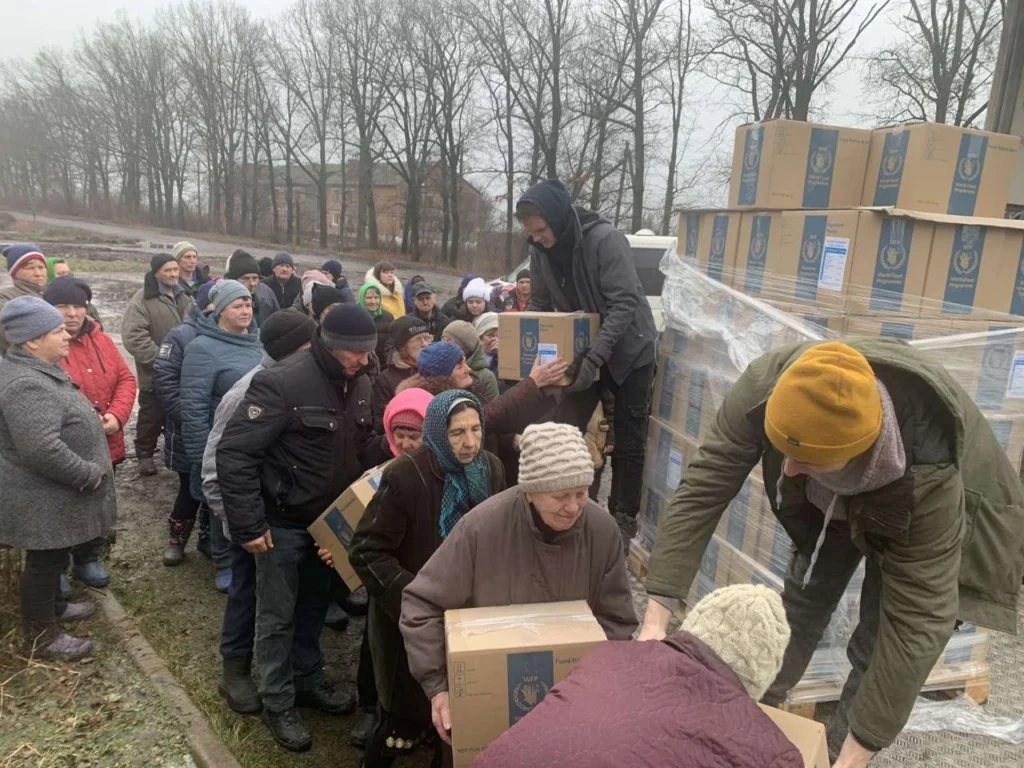
The missionary-volunteers from Rivne region help people in villages by distributing bread, clothing, Christian newspapers, calendars, and even glasses for the elderly. They unload trucks of humanitarian aid, sort it at the hub’s base, and deliver stoves. They organize children’s meetings and festive events for Easter and Christmas. They visit people with disabilities, the lonely, displaced people, and those who have survived occupation or suffered from the war. All of this they do while bringing people the message of Christ.
Serhii says that the villages in Kharkiv region are gradually dying out. If ten years ago, only three out of ten houses were empty, now only three remain inhabited. Just so a few people can hear about Jesus Christ and receive the help they need, the volunteers walk dozens of kilometers. And young people are able to do this:
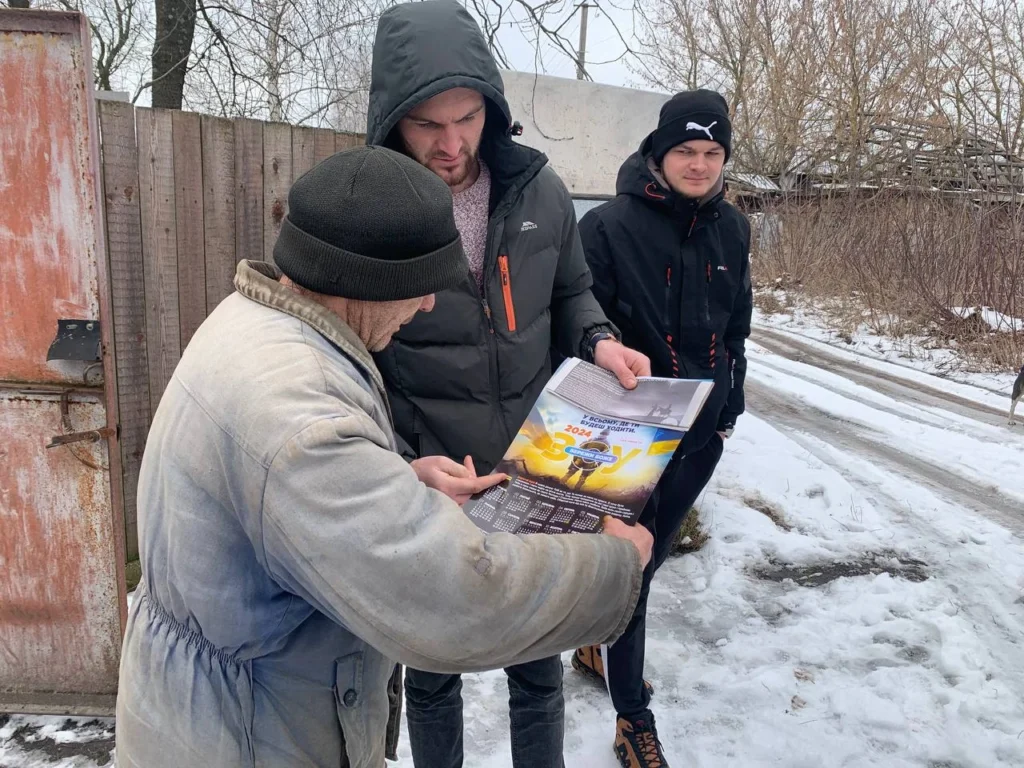
“It’s a very energetic team that can distribute Christian newspapers and calendars by the tens of thousands. They effectively help spread printed materials in 15 settlements in our district. There are many household needs at the hub and the church, and the youth help meet them. They also handle repairs and construction: the sisters cook, and the brothers build.”
“When I came for the first time, Serhii was planning construction, so we spent a week with the guys dismantling a barn. We unloaded two trucks of humanitarian aid a day, packed bags, and distributed them throughout the villages. We held five or six evangelistic events a day, distributing food, newspapers, and calendars. In villages near the border, we unloaded vehicles at night for safety. And we even repaired a tractor together,” recalls Stas, a volunteer from Rivne region.
“Serhii preached the Gospel, shared stories, and invited people to pray. We held up to six humanitarian distributions a day. But God gave us strength, and we didn’t get tired despite the tight schedule,” said Valerii, a volunteer from Rivne region.
Serhii also shared that the youth from Rivne are good singers, which is an advantage for organizing both public and personal evangelism: “Sometimes, a group of ten will enter a house and sing a beautiful psalm about Jesus, and I can see how it touches people’s hearts. When we distribute humanitarian aid in villages, most of the village gathers to listen to the singing. Where there are apartment blocks, people gather near the entrances, waiting for them, inviting them to come back. They evangelize through singing even at stores, post offices, village councils, hospitals… The youth sing beautifully about Jesus Christ, salvation, eternity.”
“We sing Christian songs, and many people cry, breaking before God,” recalls Andrii, a volunteer from Rivne region.
The most important achievement of these young ministers, according to Serhii, is their shift in life priorities. After visiting people in need, they understand what’s worth living for and where to invest their time:
“I once hosted two young sisters from Volyn. What were they thinking about? About fancy renovations, changing kitchens, things like that… But when we went to visit the elderly and the poor, they said afterward: ‘We don’t need anything else.’ So, what’s the benefit for them as youth, as ministers? They rethink their life priorities and goals. Many are chasing things that are fleeting, investing their time and attention there, forgetting about serving God. That’s where the complaints come from, affecting their spiritual and moral condition. But when they see how people live here, they begin to thank God in a completely different way.”
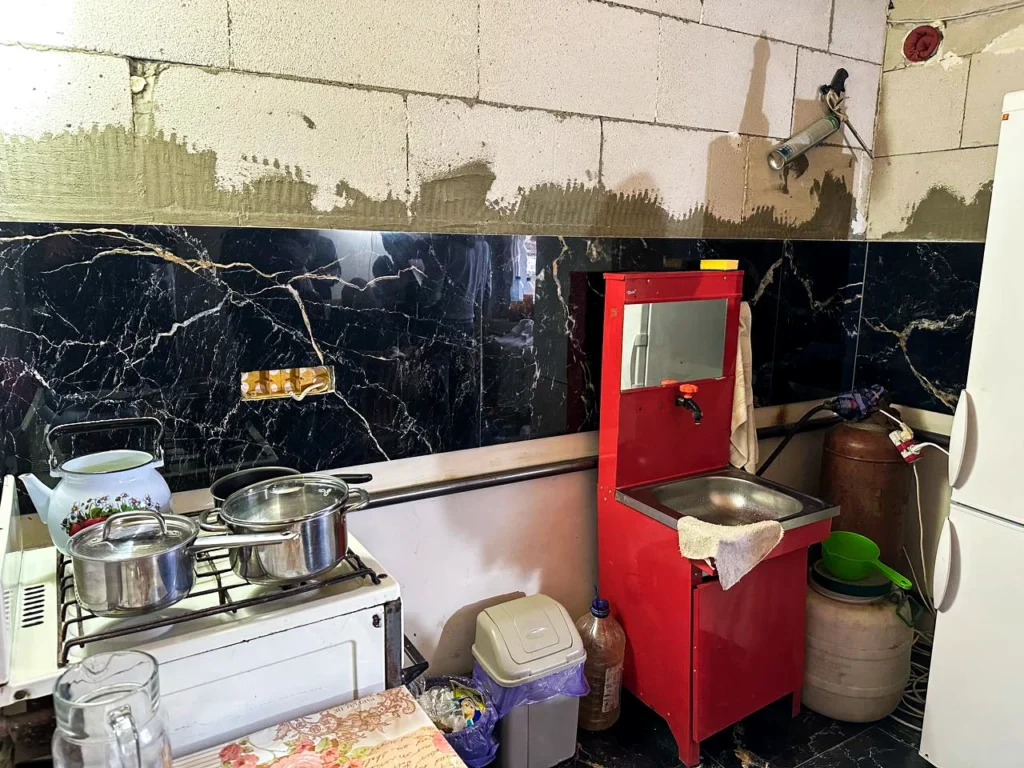
Currently, the “Home of Hope” hub needs repairs and further development.
You can support the project using the provided bank details.
